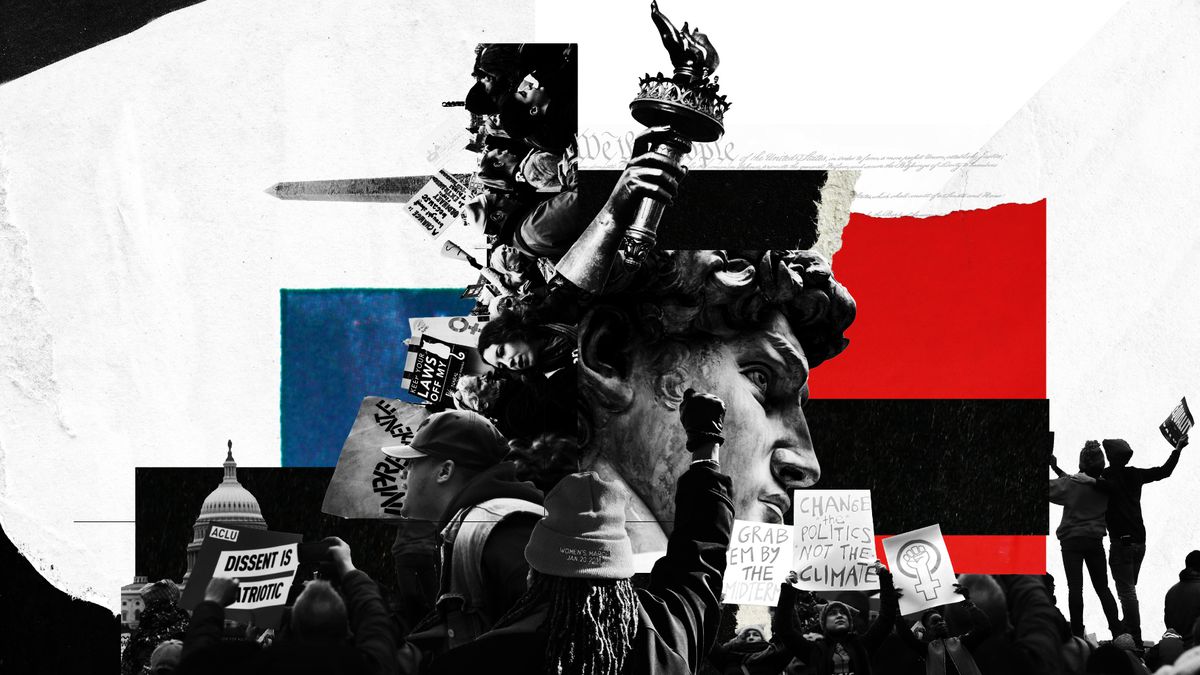RIO DE JANEIRO, BRAZIL – (Opinion) Why should we all be worrying so much about the imminent death of democracy? Perhaps, because it is in such danger of being swiped away from us, probably because we have the bad habit of taking it for granted.
Democracy has indeed had a reasonable run in the history books, even if it hardly gains any gold medals for historical staying power.
Amid the increasingly noisy, angry, and misguided turmoil that is occupying my fellow gringos, it is fair to ask if the oft-cited goal of Greek patrician democracy in 700 BC was as ideal as its reputation.

Was the Greek democracy any more or less ‘democratic’ than what the authors of the great foundational documents of the United States, its Declaration of Independence, its Constitution, and the Constitution’s first 10 amendments, best known as the Bill of Rights, had in mind?
Democracy is the precious idea that the citizens of a country should take an active role in their government and manage it directly or through elected representatives.
The only problem with this noble concept is who decides who are ‘citizens’ free to exercise that ‘active role’ – through their ability to cast a vote – and who are not. If we conjure up those beautiful ancient mosaics of Greeks voting, it is not surprising that the participants look more patrician than plebian: then, democracy was restricted to only the free landowners born in the polis.
Sound familiar? That a substantial majority of gringo Republicans still believe Trump’s totally unsupported ‘Big Lie’ about ‘fraud’ giving the election to Biden is true can only be seen as a deranged danger to the future of American democracy. If you believe the ‘Big Lie’, welcome to a flat world.
In 1789, just as in ancient Greece, those US ‘citizens’ able to vote were severely limited: only white, land-owning men had the ability to vote in most states. Of course, that has changed dramatically over the years.
But in the eyes of more than 30 percent of today’s American voters, their ideal, like that of the Greek patricians, is a white democracy with power clearly held in their own hands. “They’re trying to disenfranchise everyone who is not older white guys,” said a former Arizona representative.
State lawmakers have enacted nearly 30 laws since the 2020 election that restrict ballot access, according to a new tally as of June 21 by the Brennan Center for Justice at the New York University School of Law.
The 28 total laws in 17 states mark a new record for restrictive voting laws since 2011. The lion’s share of those laws, often written in the sugar-coated language of ‘voter protection’, are designed solely to make it harder or impossible for the colored and immigrant community to cast their votes and, in some cases, to have them fairly counted. This is not happening by mistake.
Writing in ‘The Guardian’, David Smith points out that the authors of ‘How Democracies Die’ argue that “democracies often come under threat not from invading armies or violent revolutions but at the ballot box: death by a thousand cuts.
People use elections to get into power and then, once in power, assault democratic institutions.What’s distinctive about that is that it often begins incrementally. So, people continue to go about their lives, continue to vote, parliament continues to meet, and so you think, ‘Is there really a threat?’
But as the power concentrates, it becomes harder and harder to unseat an incumbent. ”Put simply, I’m scared shitless,” said Richard Hasen, a law professor at the University of California, Irvine, and one of the country’s foremost election-law experts.
One would have imagined that even with myriad views about the details of the January insurrection at the US capitol, it would be in the nation’s interest to determine all the circumstances surrounding the attack.
How serious the attack on democracy has become cannot be better illustrated than by the fact that Senate Republicans blocked a bipartisan commission proposed to study the January 6 riot. The last thing they want or wanted was an honest appraisal of the facts.
Along with a belief in democracy, the importance of the truth and personal responsibility has gone out of fashion during the Trumpian era. As opined by Lisa Leher and Nicholas Fandos in the Sunday ‘Times’: “The message is clear. Adherence to facts cannot overcome adherence to the party line.” And the party line is clearly as crazy as the ‘Big Lie’. Bellowed ex-president Trump: “I am not the one trying to undermine American democracy—I’m the one trying to save American democracy.”
The upending of long-settled election practices and civil discourse and debate amplify the level of threat. Dark-money organizations, financed by some of the country’s richest and politically active conservatives, used to focus on getting their right-wing judges onto court benches, keeping their taxes low, and preventing abortions. What’s been elevated to the top of their agendas now? Voter suppression.
How then to save democracy…if it is savable?
The only answer must be in committed individual action, not talk; personal integrity, not personal gain. These qualities appear to have been increasingly slipping away. As a friend wrote recently, war and sex have been replaced by an idolatry of money. That personal and corporate monetization has become far more of an objective than the public good is not a favorable sign for the future of democracy.
Perhaps we must hark back to JFK’s inaugural when he asked his fellow Americans to consider “not what your country can do for you – ask what you can do for your country.”
And then go and do it.

